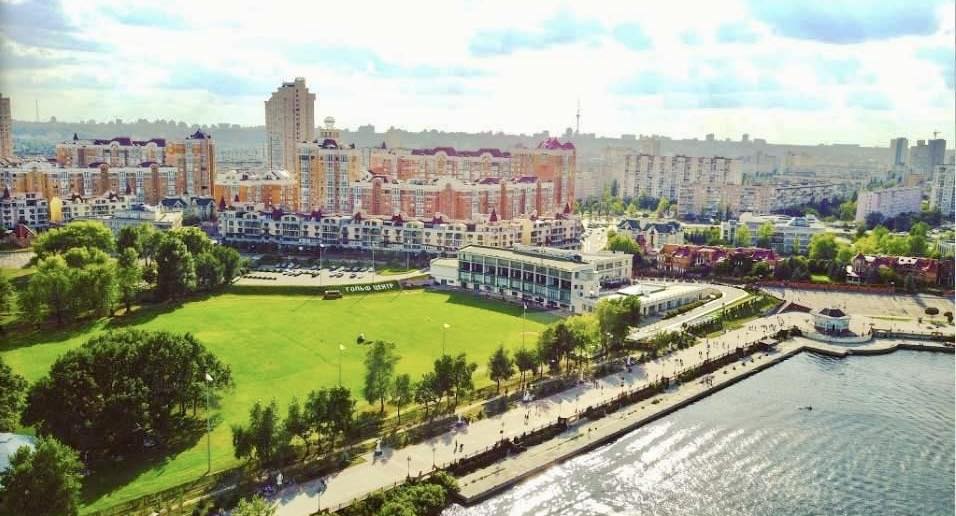The Kyiv School of Economics (KSE), a prominent American non-profit, in collaboration with global partners and donors, has successfully acquired a golf club complex situated along Kyiv's Obolon Embankment. This strategic purchase marks the beginning of an extensive plan to develop the site into a cutting-edge university campus designed for the next generation of mathematicians, engineers, and high-tech specialists. Importantly, the project will maintain the existing sports and recreational facilities, keeping the grounds open for the local community.
KSE President Tymofiy Mylovanov emphasized the significance of this initiative, stating, “Education is an essential pillar for both economic growth and national security. Ukraine’s educational system requires a comprehensive reform, transitioning from outdated frameworks to more adaptive institutions. By establishing an intellectual and innovation hub, this campus will provide talented Ukrainians the opportunity to study, innovate, and launch ventures domestically. This is a vital contribution to strengthening Ukraine’s global competitiveness and resilience.”
The transformation will unfold in multiple phases. The initial stage will focus on repurposing existing structures for classrooms, research labs, and spaces for international forums, summer schools, and collaborative R&D programs with the private sector.
With an investment of $40 million, this project stands as the largest private education investment in Ukraine’s history. Nearly half of this sum, amounting to $18 million, was allocated for the purchase of the site, while the remainder will finance the campus's renovation, equip advanced engineering and research labs, and enhance scholarship offerings. Significant portions of the funding have already been secured from international donors.
Tymofii Brik, KSE Rector, noted the growing demand for STEM graduates, saying, “The need for individuals skilled in mathematics and engineering is rising daily. This new campus will allow us to significantly expand our STEM programs, increase the scholarship fund, and broaden international partnerships. It also provides a unique opportunity for young Ukrainians to pursue education at home, with expanded support for children of military personnel, veterans, and displaced persons.”
The purchase followed a rigorous five-month review process, during which KSE’s legal team managed the drafting and execution of 45 documents, providing detailed updates to both the Campus Expansion Committee and the KSE Board of Directors. Final approval was granted by compliance, sanctions, and fraud departments at a leading U.S. bank.
KSE is committed to preserving the site’s recreational nature, integrating green spaces and opening the venue to public events, STEM competitions, a summer cinema, and community-driven initiatives. The university will collaborate with urbanists, local activists, and government officials to ensure transparency and ensure the development benefits the Obolon community, Kyiv, and Ukraine as a whole.
The Kyiv School of Economics’ previous projects have proven the impact of strategic investments in education. In 2020, Dragon Capital renovated a six-story building on Mykola Shpaka Str., valued at over $5 million, which was subsequently transferred to KSE. By 2022, the KSE Foundation had purchased the building for $2.5 million, with the remaining $2.5 million considered a charitable contribution. This new "home" for KSE allowed student enrollment to grow from 150 to 1,150 and supported the expansion of new academic programs. The $40 million Obolon project, eight times larger in scale, promises even greater opportunities for Ukraine’s scholars and students.
Since the start of the war in February 2022, KSE’s donors have contributed over $150 million to Ukraine, supporting both military and humanitarian efforts. Looking ahead, the institution’s strategic focus will shift to long-term investments in educational infrastructure, including campus facilities, laboratories, and technology centers, all critical to Ukraine’s reconstruction and defense efforts. Half of the necessary funding for the Obolon campus has already been raised, with the remainder expected to be secured shortly.



















